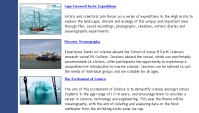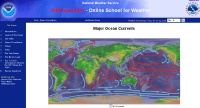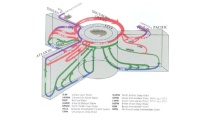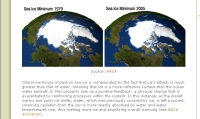 > ACCENT en > Climate Change classes 1 > 2 The Oceans > Links Oceans
> ACCENT en > Climate Change classes 1 > 2 The Oceans > Links Oceans
|
Link list Oceans and Ocean currents |
|
Exploring the Ocean |
The Oceanography Centre of the University of Southampton presents several projects and materials concerning how the oceans can be explored by teachers and pupils in the classroom |
|
Texas A&M University provides an excellent online textbook on oceanography. Here you can find material related to nearly all questions concerning the oceans and water on Earth: |
|
|
Water distribution on Earth |
The website of the US Geological Survey shows on an overview website in a single diagram how water is distributed on Earth. |
|
|
Energy storage in the ocean |
A site on ocean.com explains in an illustrated interview how the oceans work as heat traps and store more and more energy. (Please copy the link to your browser!) |
|
|
Sea breeze and land breeze |
NOAA gives a basic explanation how sea breeze and land breeze work: |
|
|
Global ocean circulation |
A brief introduction to the global ocean circulation is given on this ESPERE website: |
|
For a detailed view of the ocean circulation, the following lecture of (Univ. of Berkeley) is recommended: www.atmos.berkeley.edu/~jchiang/Class/Fall05/ |
|
|
Climate change impacts |
A page from World Resources Institute gives a nice comprehensive overview of what impacts climate change related changes in the ocean-ice system have on us. Ecosystem impacts are nicely explained on a website from the German Gov. Advisory Board. |
|
|
Good bye Gulf Stream? |








